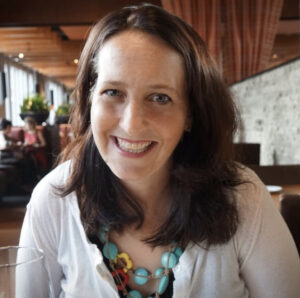In a box of old photographs, I found images of my grandmother holding me in front of a birthday cake. Our birthdays were only a day apart and we shared my first few cakes. I barely knew her. She would die from cancer before those cakes needed more candles than I had fingers on one hand.
These pictures are my primary memories. My older siblings can tell me things like how she cooked her cornbread and grew flowerbeds of irises. They can describe the rasp in her voice, probably from smoking too many unfiltered Camels.
I don’t carry those memories, but I do have a few photographs—enough to see features Honey and I share. I can see how tightly she holds me and how fondly she looks at the baby in her arms. All I have are a few photographs, but I know from them that she loved me fiercely.
Pictures have that kind of power. They tell us stories we never knew, they remind us of stories we forgot, and they show us stories about ourselves that we don’t see.
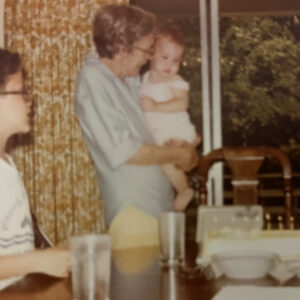
As an adult, I lived through a hard season of chronic pain and brain surgery. Often I felt like I barely made it through the day. Those years are a blur of medicine and painful attacks, and I look back and worry about the kind of mother, spouse and friend I had been. My images tell a different story than I remember. I only remember the pain, but all I need to do is flip through my phone to see hundreds of pictures of races, trips, dinners, adventures, birthdays, graduations, weddings—picture after picture of my kids doing their favorite things, smiling their faces off, while I am there to witness it. On social media we post the most edited and curated versions of our life, so I admit not every photo on social media reflects real life. However, these reminders of my best moments are still real. They show joy and adventures with pictures of hikes, oceans, lakes and mountains climbed—literally and figuratively. These pictures remind me of the moments that got buried by the hurt. I’m so glad to have hundreds of images to remind me that my worst season was not wasted. That season was more than just days to get through and over, that there are pieces to keep, remember and celebrate even in the hurt.

Several years ago my friend Rhonda asked me to help her with a photo shoot. I thought she just needed someone to carry the camera equipment or hold up a light. Instead she wanted me on the other side of the camera—she needed a model. Most people would love a good photo they can post to social media or use as a headshot, but the idea of modeling made me uncomfortable.
She talked about her vision for this shoot for weeks, including hair, makeup, accessories, outfits and location. The descriptions were artsy and hard for me to imagine. My general “vision” tends to lean more along the lines of jeans, a baseball hat and a soft t-shirt. However, there isn’t much I wouldn’t do for this friend. I told her to tell me when and where to show up. I warned that I might be a little awkward, but that I would promise to try my best.
She helped me with my hair and makeup and I felt like I was going to prom. In the Texas heat I sweated through my dress as she took hundreds of photos. For each pose, I needed detailed instructions. She told me how to position my feet, legs, chin, eyes and nose to bring out the best lines and make me look slim and sleek. Everything was chosen with purpose and I thought maybe I had been standing wrong my entire life.
I joked about my discomfort, but I think the awkwardness was less about fake eyelashes and odd poses and more about being the focus of so much attention. Allowing yourself to be photographed over and over gives you an opportunity to be seen. The pictures were stunning. She found my best angles but still managed to capture the real me.
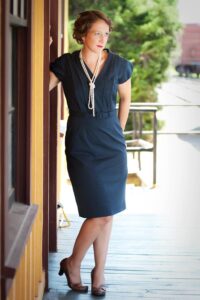
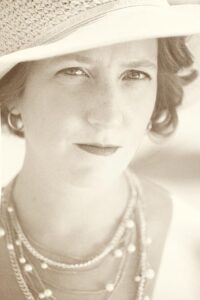
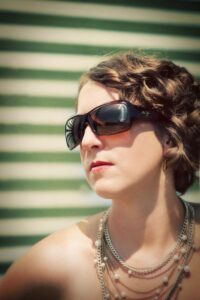
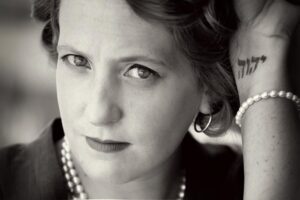
My friend saw something from the beginning that I couldn’t see. She saw a version of myself that I had never even imagined. She found my best and brought it out, put it in a frame, and forced me to see myself differently. A beautiful photograph does more than make us feel pretty, it can make you feel more like yourself.
When someone sees you differently than you can see yourself—that gives you hope. It doesn’t take a camera to help someone feel seen. I’m a writer, not a photographer, so I use words to show people who they are. I’ve had friends do the same with a thoughtful card, a knowing smile or a heartfelt conversation over a cup of coffee. It doesn’t take a camera to make someone feel noticed and wanted.
Whatever your tool—a camera, a computer, a coffee cup, or a hug—give someone a better picture of who they are. See them, give them a moment, or a memory. It’s a powerful gift.
Check out more writing from Michelle. https://sites.google.com/view/michellewallishurst/home
